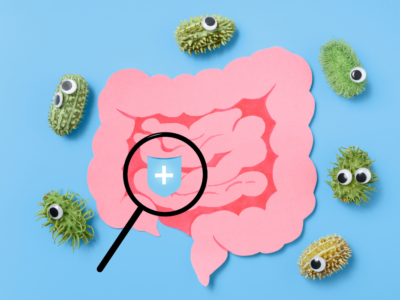Now that winter is among us, the dreaded cold is inevitably here (pandemic or not!). And unfortunately, due to their little immune systems, babies are more likely to come down with a cold than the rest of us.
No matter how hard we try, protecting them from viruses isn’t always possible. This is especially true for babies that are born prematurely or those who are exposed to other children, whether they attend daycare or have older school-aged siblings.
Here are some important things to keep in mind when your baby has a cold, along with steps you can take at home to help your child feel better in a hurry.
Common cold symptoms in babies
According to Dr. Rebekah Diamond, MD, assistant professor of pediatrics at Columbia University and author of the forthcoming book Parent Like a Pediatrician, “Cold symptoms in babies are pretty similar to those in older kids and adults, mostly with cough, congestion, and runny nose.”
Other baby cold symptoms may include:
- Sneezing
- Low-grade fever
- Decreased appetite
- Difficulty sleeping
- Irritability
Other infections that mimic colds
RSV
Respiratory Syncytial Virus Infection, more commonly referred to as RSV, is often mistaken for the common cold virus; however, RSV can quickly become a serious illness resulting in bronchiolitis or pneumonia and may require hospitalization.
While most children will get RSV at some point before the age of 2, it can be especially dangerous for babies under the age of 6 months.
Croup
Croup, which refers to an infection in the upper airway, usually begins as a common cold virus with congestion, cough, and fever. After several days of these symptoms, the inflammation of the windpipe, voice box, and bronchial tubes can result in a loud barking cough—known as the “Croup cough”.
While the majority of Croup cases don’t require hospitalization, it’s important to keep a close eye on your baby. Their small airways are more likely to experience trouble than older children and adults.
Home remedies for colds in babies
Having a sick infant is often very stressful for parents. Many wonder how to help their baby breathe with a cold, or worry when their eating habits or sleep patterns are affected.
While there is no simple cure, there are several baby cold remedies that may help your little one combat infection more comfortably.
Increase fluids
This is often difficult for babies who have a decreased appetite or are having trouble nursing or taking a bottle as a result of their nasal congestion, but it’s important to ensure that your baby stays hydrated. Increasing fluids will also help thin out the mucus contributing to the congestion.
Tip: Anytime your little one is sick, it’s essential to watch for signs of dehydration. Contact your pediatrician if your baby seems lethargic, is very pale, or has decreased urination.
Nasal Suctioning
When paired with saline nasal drops, nasal suctioning can be a great way to keep your baby’s nasal passages clear and allow them to breathe more easily.
Administer the saline drops, wait several minutes to allow the drops to loosen the thick nasal mucus, and then use a rubber-bulb syringe or nasal aspirator to suction each nostril.
Tip: Suctioning your baby’s nostrils prior to feeding your baby may make it easier for them to breathe while eating, which will help keep them hydrated.
Humidifier
Keeping the air moist may help reduce nasal congestion and ease other cold symptoms, like a sore throat or cough. Opt for a cool-mist humidifier to reduce the potential burn risk associated with warm-mist humidifiers.
Tip: You should clean your humidifier daily to reduce the risk of bacterial growth. Otherwise, you may be doing more harm than good.
Rest
It’s no surprise that your baby may not be their normal energetic self when battling an illness. They may want to be held more than usual, making it difficult to get anything done. This may feel frustrating, but the extra rest will help your baby’s body build up its immune system and fight off the cold.
Tip: If you’re struggling to get household tasks done and your baby is without a fever, try placing them in an infant carrier or wrap while you go about your chores.
Continue to Breastfeed
If you are breastfeeding, continue to do so as often as possible. Your body will begin making antibodies to combat your baby’s virus, which will then transfer to your baby through your milk.
Tip: It’s normal for a baby’s eating habits to change during sickness. If your infant doesn’t want to nurse, continue offering the breast or expressed milk frequently. On the other hand, they may want to nurse constantly.
The “don’ts” of cold care for babies
Along with ways to soothe a baby, there are several “don’ts” associated with caring for an infant with a cold.
Some of these include:
- Don’t give babies over-the-counter cough and cold medicines.
- Don’t use VapoRub on babies less than 2 years old.
- Avoid giving honey to babies under the age of 1.
When is it time to visit a doctor?
Deciding when it’s time to visit the doctor may depend on the age of the baby. If younger than 3 months old, it’s advised to contact your doctor early—especially if they have a fever.
“Younger babies are more likely to have cold symptoms that also come with more serious breathing problems,” Dr. Diamond explains.
“Any baby that’s breathing fast, flaring their nose when they breathe, sucking in the skin between their ribs, making grunting noises when they breathe, is too tired to wake up, is so fussy that they can’t be consoled even for a little bit, or has signs of dehydration should see a doctor immediately.”
Most importantly, trust your instinct. If you feel that it’s time to visit your doctor, it probably is.
As guidelines continue to evolve around the COVID-19 pandemic, we recommend checking the CDC website for the most up-to-date information.



